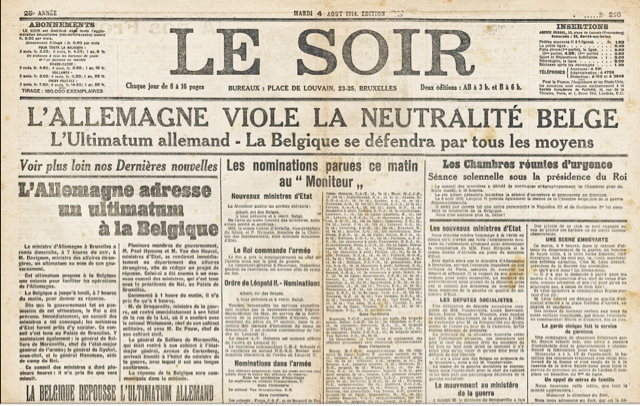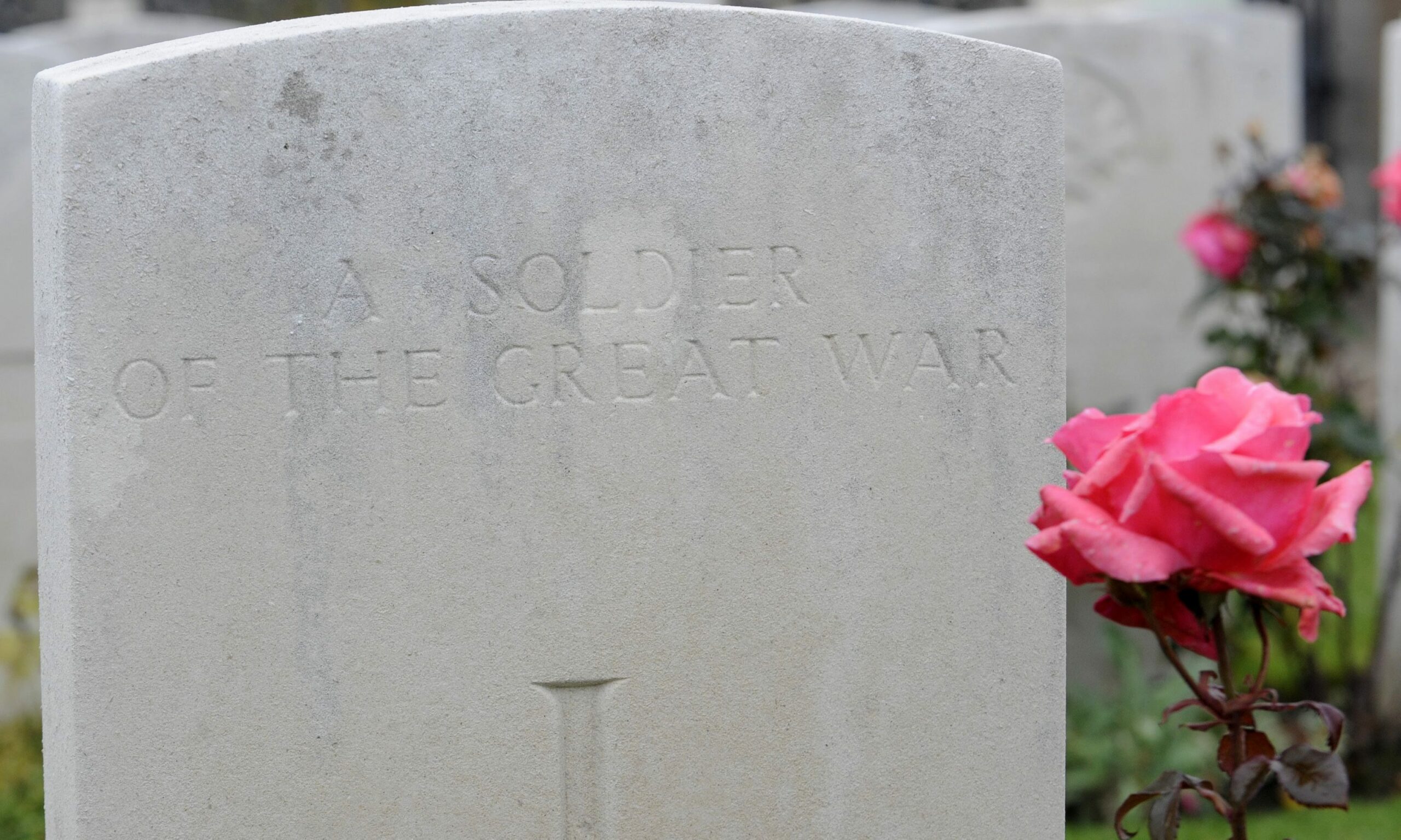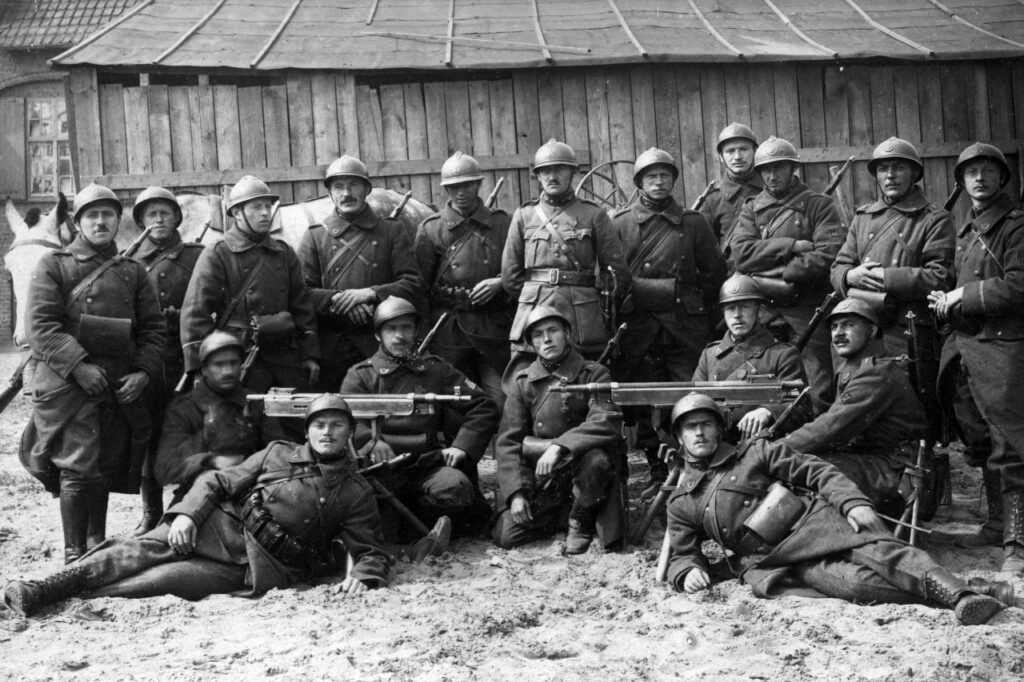The First World War started in Belgium on this day (4 August) 110 years ago. Belgium desired to remain neutral, but this principle was violated in 1914 by the German invasion of the country. Belgium remained war-front territory for four years.
The German Imperial army crossed the German-Belgian border near Liège on 4 August 1914, violating Belgium's founding tenet of neutrality. This marked the start of the war in the country and was also the first war on Belgian territory since 1831.
The German army leadership intended to launch a surprise attack on France through neutral Belgian territory as part of the Von Schlieffen plan. This involved the army moving westward from Germany through Belgium and the Netherlands and then south across the Franco-Belgian border.
The invasion was not entirely unexpected: ten years earlier the Belgian government had been informed that Germany had plans to enter France through Belgium in case of a war between the two nations. One year before German troops moved on France, German Kaiser Wilhelm II had again warned King Albert I that Germany would not respect its neutrality.

Front page of Le Soir on 4 August 1914
In preparation, Belgium introduced conscription in 1909 for one son per family; this was extended in 1913 to a general conscription. Around the strategically important cities of Liège, Namur and Antwerp, large fortress belts were erected.
On 31 July 1914, days after the assassination of Archduke Franz Ferdinand – the presumptive heir to the Austro-Hungarian throne – and his wife, Sophie, Duchess of Hohenberg, which was one of the key events that led to World War I and led to the outbreak of hostilities between Austria-Hungary and Serbia, a general mobilisation was proclaimed in Belgium.
Ultimatums
At this point, Belgium had over 200,000 soldiers. However, nearly a million better-equipped German soldiers were waiting at Germany's western border. Late on 2 August, Belgium's Foreign Minister Julien Davignon received an ultimatum: let the German army pass through Belgium to France unhindered or refuse passage and be treated as an enemy.
The Belgian Council of Ministers, presided over by King Albert I, rejected the German demand on 3 August. By 08:30 the next morning, the first German units moved across the border towards Liège. At 10:00, Antoine Fonck (second Regiment Lanciers) fell as the first Belgian soldier.
At noon, the government in Brussels requested support from France and Britain to repel the attack. The British government issued an ultimatum to Germany on the evening of 4 August, giving it 24 hours to withdraw from Belgium or both countries would be at war. Germany refused and Britain declared war on Germany, becoming the final major European power to enter the war. In the following days, massacres took place in several villages and hundreds of civilians were killed, while towns were burned down.

A grave of a victim of the First World War (1914-1918) in the Commonwealth Great War Cemetery. Credit: Belga/ Herwig Vergult
Most of Belgium was occupied by Germany until shortly after 05:00 on 11 November 1918, when the armistice was signed.
Few reliable statistics are available on how many people died in Belgium during World War I as figures were contaminated by double counting, inaccurate administration, incorrect aggregations and/or inaccuracies in the classification. The Spanish flu that broke out in 1918-1919 further complicated the counting. However, a recent count conducted by the In Flanders Fields Museum (IFFM) states that around 600,000 people died in Belgium during the war.
Today also marks the anniversary of a key moment in the Second World War. Exactly 80 years ago, Anne Frank and her family were discovered in their hiding place, the Secret Annex, where a total of eight Jewish people in hiding had lived for more than two years since the German occupation during World War II. Her diary became world-famous after her death, while the young girl herself became a symbol of the persecution of Jews.

